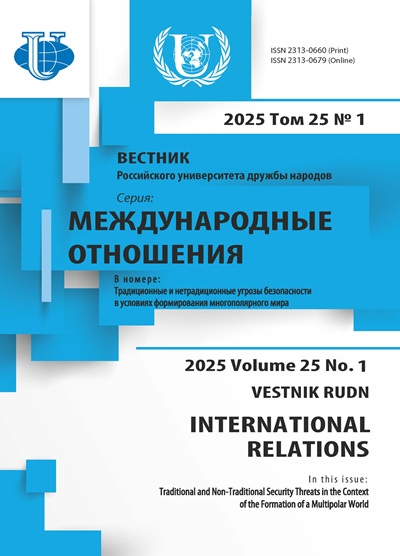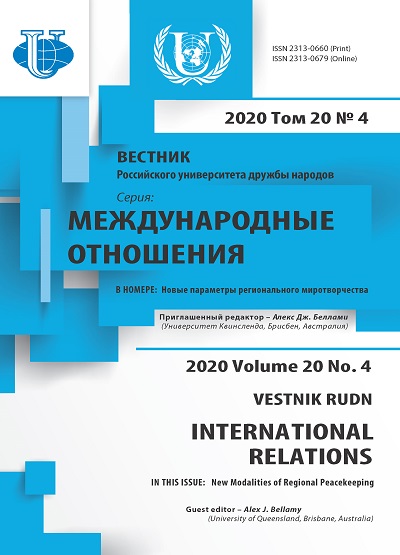Abstract
This article is focused on special characteristics of formation and development of the interaction between South American countries located on the territory of the Amazon Basin from the development of the Amazon Cooperation Treaty (ACT) in 1978 to the signing of the Leticia Pact for the Amazon in 2019. Considering the evolution of cooperation between South American countries in the Amazon River basin, the author relied on the regional integration theory and the Neoliberal IR theory and proposed his own periodization of this process with an analysis of the stages of interaction. The main methods used by the author in the study are systemic analysis and structural-functional analysis, thanks to which the author was able to examine in detail the main directions and characteristics in the sphere of interaction of South American countries in the ACTO. The method of content analysis was used in dealing with documents of the organization. The author came to the conclusion that for South American countries geographically located in the one area, one of the most important components in the interaction was the creation of a common mechanism - ACTO. Without the creation of ACTO and the implementation of coordinated activities in this area, there would be a certain risk of an institutional vacuum in the Amazon, which, due to the activity of illegal armed groups, could potentially lead to the emergence of quasi-governmental entities. In the context of the global transition to a sustainable development model, such format of interaction as the ACTO plays a special role because natural disasters occurring in the Amazon region strongly affect climate change on a global scale. Thanks to the existing coordination among member countries in the ACTO the Leticia Pact was signed.











